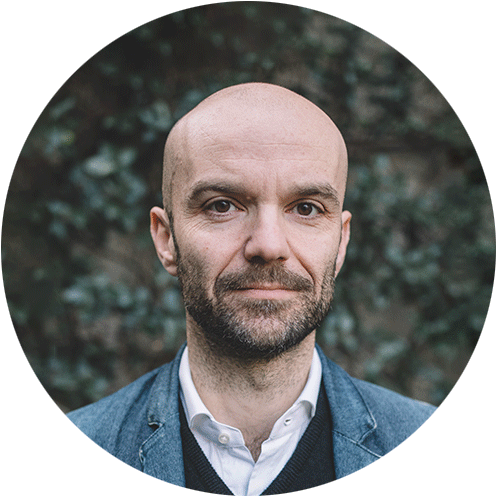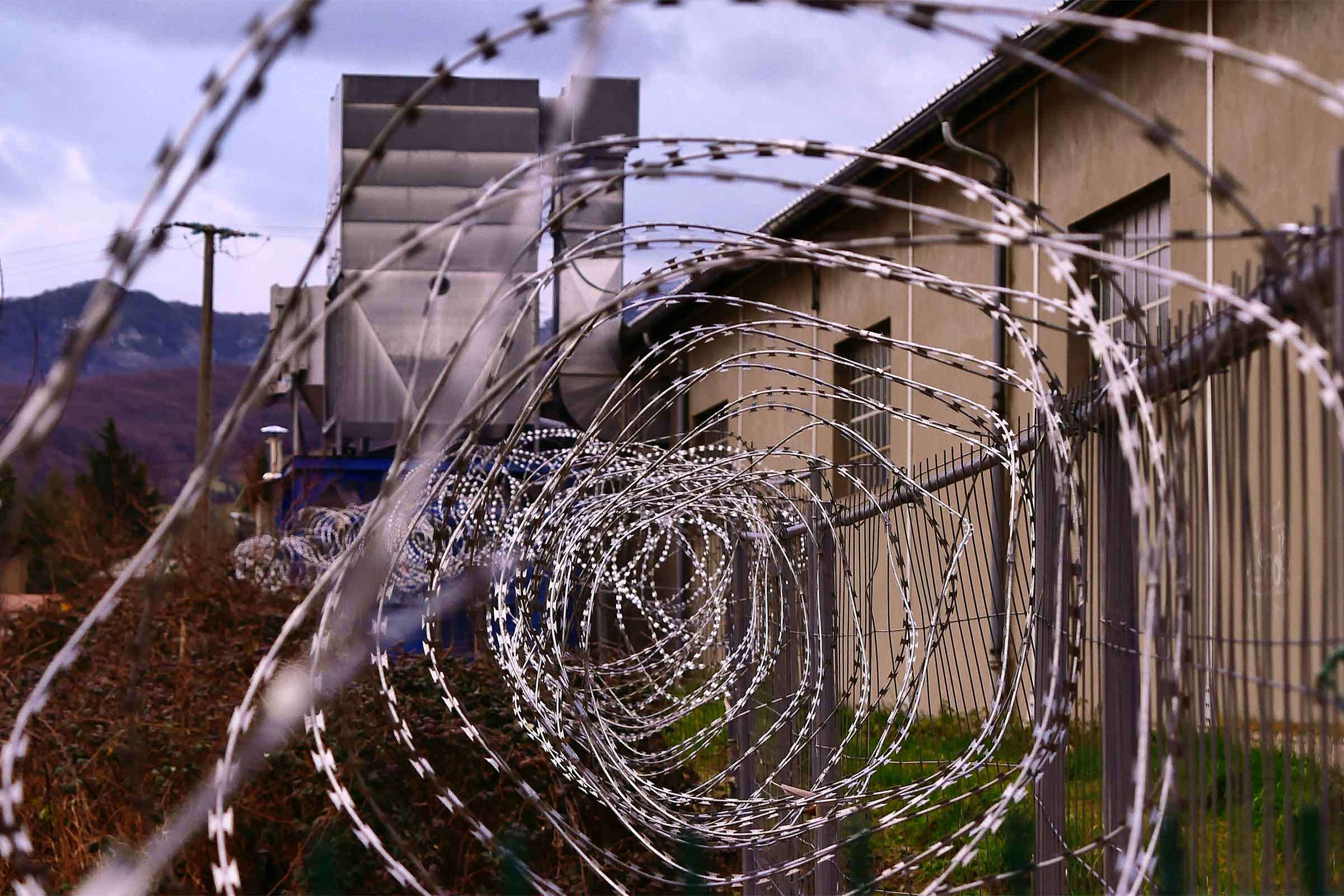New! Bachelor of Criminology coming in 2026. Check out more details.
Piero Moraro doesn’t just teach his students, he challenges the way they think. The Charles Sturt University lecturer presents Punishment and the State – a subject that challenges some conventional notions of punishment, justice, and the effectiveness of jails. With a background in teaching human rights, social justice and Indigenous justice, and researching punishment issues, Mr Moraro asks his students studying criminal justice to look beyond the stereotype.

“As a teacher, my goal is to encourage students to start thinking and asking questions. I want students to challenge their preconceptions. I don’t want them to agree with me. I don’t want to show that I’m right and they’re wrong. In fact, it might well be that I’m wrong and they’re right. I certainly learn from them.
“Studying criminal justice helps them to understand that the criminal justice system is much more complicated than the media makes it look. You cannot summarise it in a slogan, or find a one-size-fits-all approach. And you cannot label people as bad simply because they breach the law; you need to see where they’ve come from and the experiences they’ve had.
“I want my students to stop for a moment and say ‘maybe what I thought isn’t completely right’. Question whether something else needs to be done with the criminal justice system for it to be a completely just system. Acknowledge that simply locking people up and throwing away the key is not going to do any long-term good.”
Answering the tough questions on our prison system
Many students who study Punishment and the State aspire to work in Corrective Services NSW or for the NSW Police Force – and Piero says they can benefit from seeing both sides of the debate on the criminal justice system.
“Students can sometimes come with very strong assumptions about the criminal justice system, criminals and the realities of prisons. A lot are strongly in favour of very harsh punishments. There is always a risk that those prejudices and misconceptions will be taken into their professions.”
The hard questions are asked in Punishment and the State: what should the prison system do, what do we expect criminals to do in prison, and how do we expect them to be we they leave? What are prisons doing in our societies? Re-incarceration rates and the length of sentences are investigated and issues discussed like the growing number of people sent to prisons for offences which are not considered serious.
Three other topically areas explored are the emergence of private prisons, safe injecting rooms in prison and the issue of inmates’ rights. They are guaranteed to generate robust, vigorous debate.
Should we privatise prisons?
Private prisons are beginning to pop up throughout Australia. Currently there are nine – with two in NSW. Near Wagga Wagga there’s Junee Correctional Centre, and Parklea Correctional Centre is located in North Western Sydney.
Piero believes we are following the lead from the USA, and he asks his students to consider the ramifications.
“Students consider the role of capitalism and look at the role of prisons as a profit-making enterprise. We’re trying to copy what the Americans are doing and, interestingly enough, these private prisons in Australia are being contracted out to American companies.
“The emphasis is on making money rather than on helping citizens be safer and reducing re-offending rates. The paradox of the system is that a private prison needs to be guaranteed a certain number of inmates each year. These prisons demand criminals. They have little call to reduce the number of offenders.”
Should we have safe injecting rooms in prisons?
Should we have safe injecting rooms in prisons to help prevent the spread of diseases between inmates?
“This is something students would not think about at the start of our study. They think it’s crazy to provide inmates with clean needles to inject drugs while in prison. Then they realise there are drugs in prisons and there’s no way to stop the drug use.
“So they question: should we provide means for incarcerated drug addicts to stay safe and prevent contracted diseases such as HIV? The emphasis changes to be on the welfare of inmates.”
Finding perspective through stories
Piero believes that deeper analysis leads to fresh thinking, and looking at situations differently broadens understanding.
Cue Louis Theroux, the fearless filmmaker who tackles uncomfortable realities head-on. His 2008 documentary Behind Bars is a teaching tool in Punishment and the State. Students watch as Mr Theroux visits the high-security San Quentin State Prison and talks with guards and inmates. Mr Moraro believes it’s a powerful watch – a warts-and-all eye-opener.
“It’s unique because we hear the voices of the inmates. We learn their stories.
“Take David Silva. He was serving 521 years and 11 life sentences. He was in the juvenile justice system when he was 11 years old. And stayed there for nine years. Went he came out he went into prison. Having heard him, even the most conservative students agree there seems to be some way this man has been failed by the institutions. They couldn’t give him help when he was young.
“So, I ask students to write a reflective piece combining what we have learned and seen and measure it against their own preconceptions about the criminal justice system.
“Those students who have the strongest opinions – and believe that criminals should suffer because they are horrible – are rarely open to discussing alternatives. They may be afraid of conceding that inmates need help and are often victims themselves.
“But this subject is all about challenging how our students think. They become a little less confident. They begin to question their opinions. For example, people’s anger towards criminals can start to vanish once we explore the demographics of those in prisons – many who are from disadvantaged backgrounds.”
A look on the inside of criminal justice
One of the most unique aspects of studying Punishment and the State is the visit to Bathurst Correctional Centre. Mr Moraro explains that these visits consolidate the learning of those studying criminal justice and introduce the reality of incarceration.
Did you know? We have a dedicated scholarship for you if you study the Bachelor of Criminal Justice full-time on our Bathurst campus. It’s got your name on it, so get your application in! Don’t rule yourself out.
“Towards the end of the subject, it’s good to go and look at the prison, having had all of our learning discussions. We go on a tour, and the students get to ask the staff and guards questions. You learn about everything from what type of food inmates eat to what support the prison system provides to them. Students are still surprised by the reality of jail, including things like how small the cells are and the fact that, as guards explain, inmates are often safer inside the prison than out of it.”
Going behind locked doors is an appropriate way to wrap up Punishment and the State. It reinforces the need to challenge conventional thinking and to view prisoners in a different light.
“Inmates are not objects with which we do things. They are subjects who need to be engaged in the process. We aren’t looking at just punishing people to feel good or safe. We punish them to do something with them. So they go to prison in order to be part of a process that aims to make them better citizens.
“I like seeing the light go on when someone studying criminal justice is faced with something they have never thought about. They have to reset their assumptions about what is happening. If I can lay just one seed of doubt that there may be more to things than what the media tells them, that is, for me, success.”
Create a world worth living in by studying criminal justice
What does a better world look like to you? Does it mean finding a cure for illnesses, improving education, being a legal advocate, leading a movement or developing innovative technologies? Or is it about challenging conventions and forging new paths?
Become a leader in making your community safer and a better place to live with our Bachelor
of Criminal Justice. Or see how our wide range of courses will give you the skills and industry knowledge you need to be the change you want to see in the world. Follow your heart, get qualified and land a job you’ll love with Charles Sturt University.


You must be logged in to post a comment.